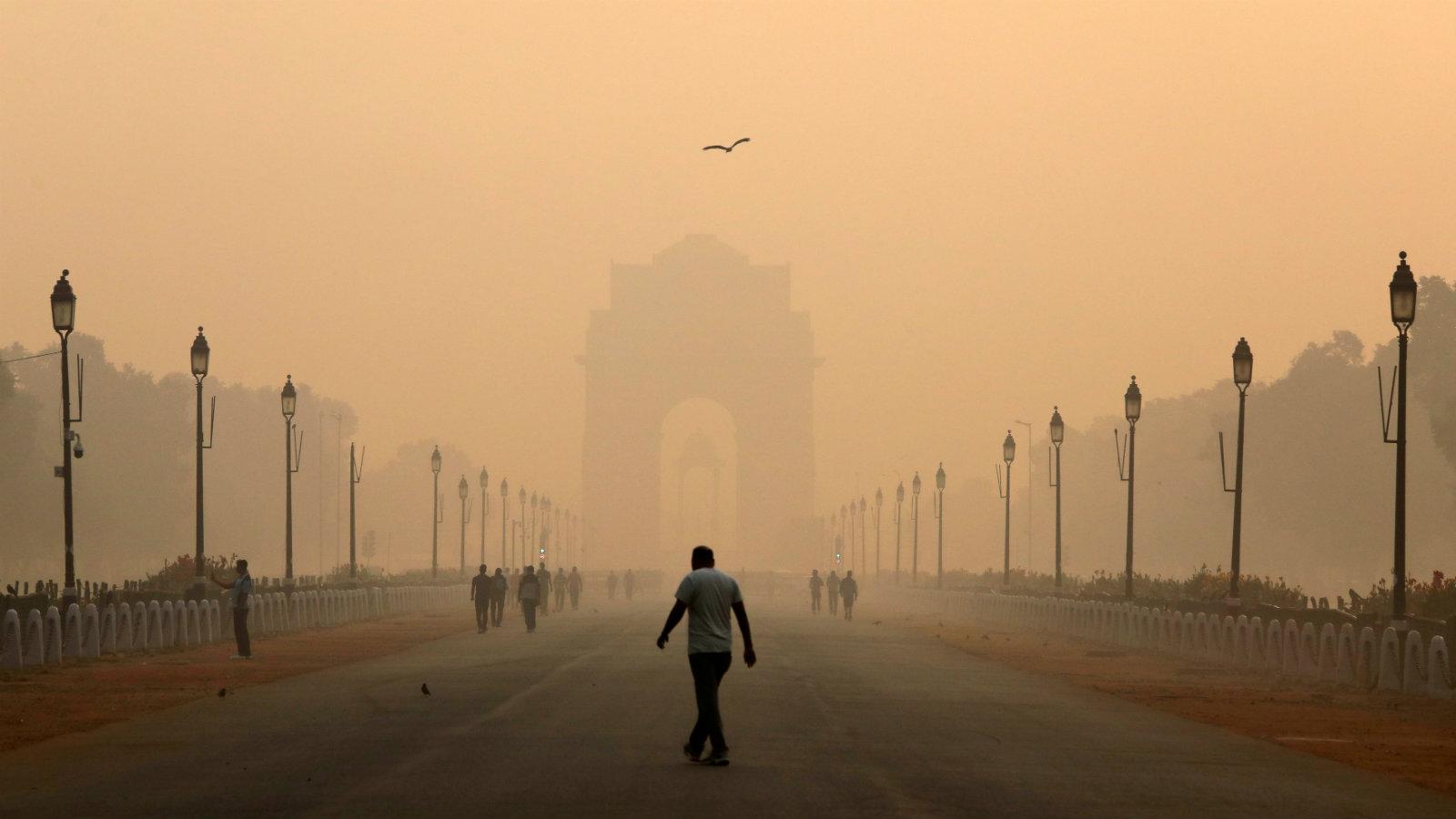New Delhi: Rising pollution levels in Delhi-NCR amid the ongoing coronavirus pandemic has worsened people’s woes. Several experts are concerned that these high pollution levels might aggravate the spread of the coronavirus. Due to the coronavirus lockdown, residents of the national capital had experienced cleaner and fresh air. It’s not unknown that the national capital has been consistently ranked among the world’s most polluted cities.
Delhi is recording severe Air Quality Index (AQI) almost every day. Several studies have pointed out that Covid-19 deaths occur due to long-term exposure to “urban air pollution”. In early October, air quality in Delhi slipped to the “poor” category for the first time in three months.
The Delhi government has already started taking the necessary steps to reduce air pollution level in Delhi. On Wednesday, Environment Minister Gopal Rai inaugurated the “Red Light On, Gaadi Off” campaign as part of the state government’s “Yuddh Pradushan Ke Viruddh” (War Against Pollution) initiative.
As it is well-known that stubble burning in adjoining states contribute the most to the cities’ rising pollution levels, Delhi Chief Minister Arvind Kejriwal and Environment Minister Gopal Rai have also kick-started the scheme to covert stubble into compost and avoid the practice of burning it. According to reports, as many as 7,105 stubble burning cases have been reported in various parts of Punjab till 19 October 2020.
Anumita Roy Chowdhury, Executive Director Research and Advocacy, CSE, told The Sunday Guardian: “We know from our past experience that winter pollution is always severe in Delhi and northern India. This winter, in the next few weeks, the levels are going up and the signs are already there. In the winter, we expect to have a huge impact on the respiratory system of the people as this time it’s a double whammy. At one point, the respiratory health will deteriorate for a large vulnerable population due to air pollution and at the same time when your lungs are weak, the risk of catching the Covid infection also increases. This is what the doctors are telling us now. We are worried about this.”
She said that due to rising levels of pollutions levels the number of coronavirus cases might also increase in winter. “We need to minimise the exposure to pollution as much as we can. There has to be very stringent actions because at this moment, we are looking at short-term measures. There has to be zero-tolerance for any kind of violation,” Chowdhury said.
Asked about how the people can protect themselves, Anumita Roy Chowdhury told The Sunday Guardian: “We are looking at two kinds of protection. One kind of protection exists against the Covid infection and we know that we need to follow guidelines very rigorously with absolute discipline. We have to wear our masks when we go out, we have to follow social distancing norms, etc. That’s absolutely essential as far as prevention against Covid infection is concerned. But at the same time, we will have to take measures to reduce our overall pollution exposure. That means, we have to avoid going out when the pollution levels are high. We need to be responsible citizens and make sure that wastes are not burnt in our neighbourhoods. We need to put pressure on municipalities to implements rules.”
It is noteworthy that health problems like heart attacks, strokes, diabetes and high blood pressure
Emerging research, including a study from Harvard T.H. Chan School of Public Health, has now suggested that breathing more polluted air over many years may itself worsen the effects of Covid-19.
The Harvard study is one of several that have now suggested that air pollution is affecting Covid-19 mortality. Researchers analysing 120 cities in China found a significant relationship between air pollution and Covid-19 infection, and of the coronavirus deaths across 66 regions in Italy, Spain, France and Germany, 78% of them occurred in five of the most polluted regions.
Meanwhile, there’s also evidence from previous outbreaks like SARS, which was also a coronavirus, as well as many other respiratory infections including influenza, that breathing more polluted air increased risks of death.
Another study by Harvard University study shows that an increase of only one microgram per cubic metre in PM 2.5—dangerous tiny pollutants in the air—is associated with an 8% increase in the Covid-19 death rate.
Another similar study by scientists at the UK’s University of Cambridge also found a link between the severity of Covid-19 infection and long-term exposure to air pollutants, including nitrogen oxides and ground-level ozone from car exhaust fumes or burning of fossil fuels.
According to reports, the PM2.5 levels in Delhi have averaged around 180-300 micrograms per cubic metre in recent weeks and this is 12 times higher than the WHO’s safe limits.
Delhi-NCR is battling with two massive health challenges that are both targeting the respiratory system and rising at the same time.

